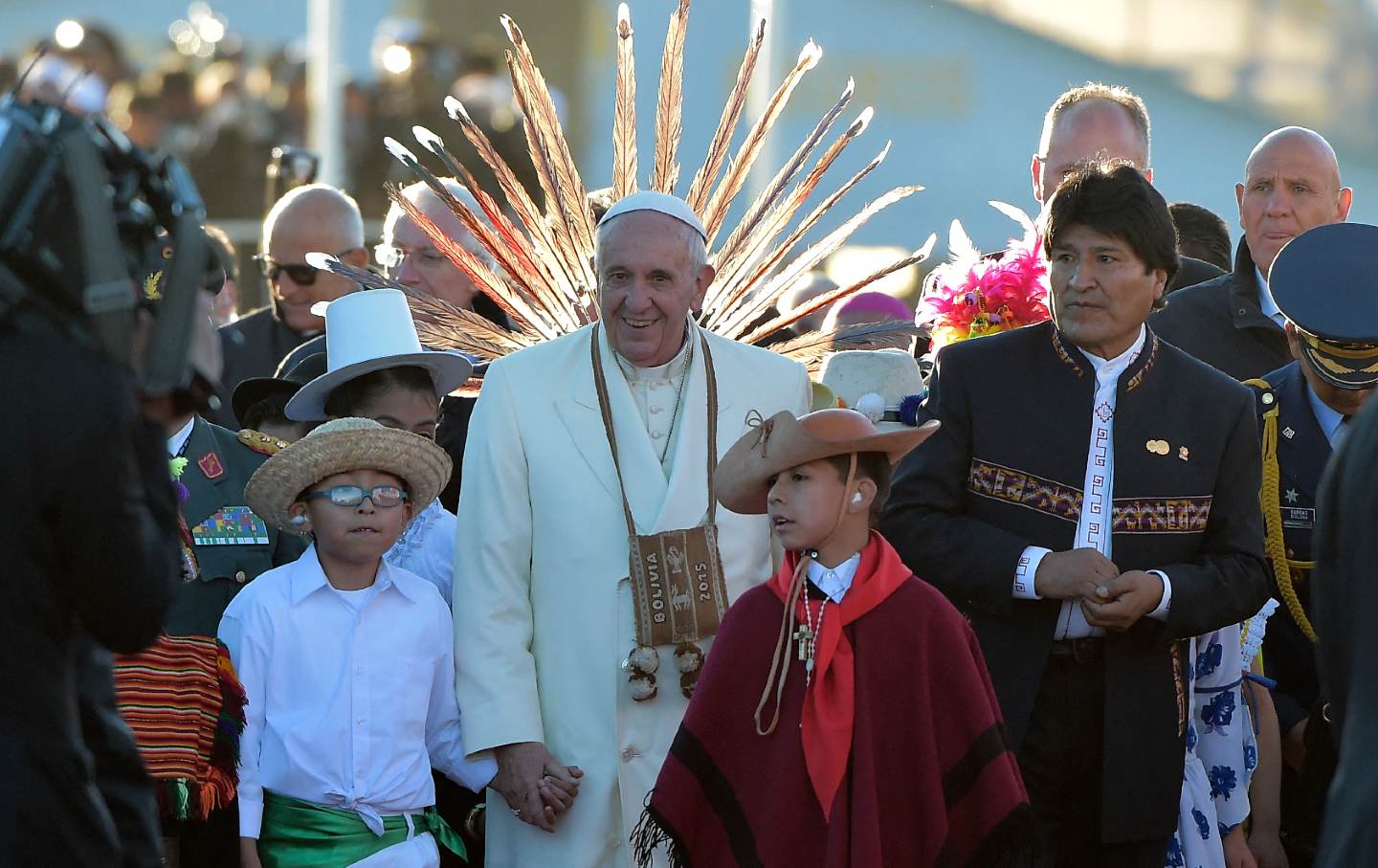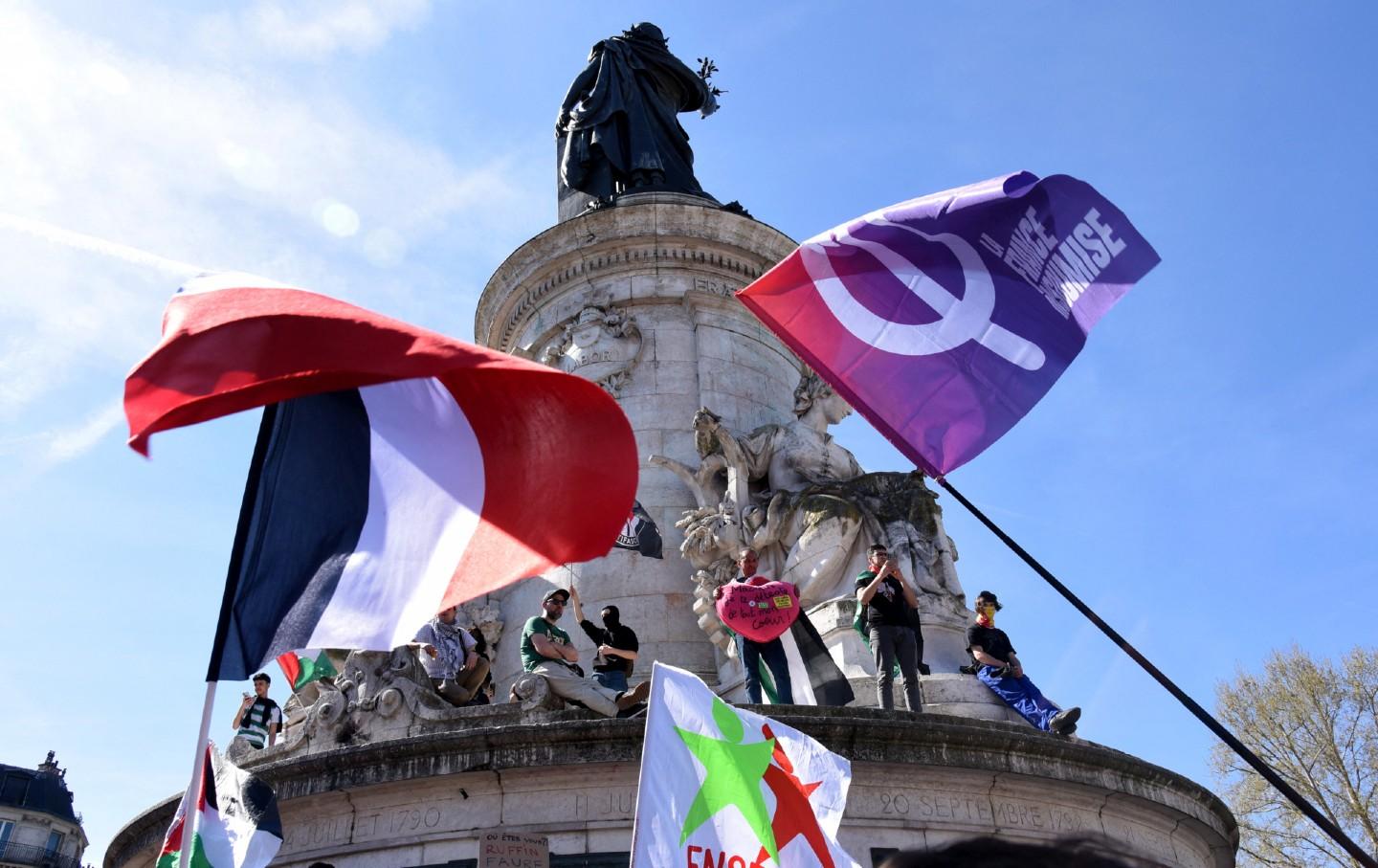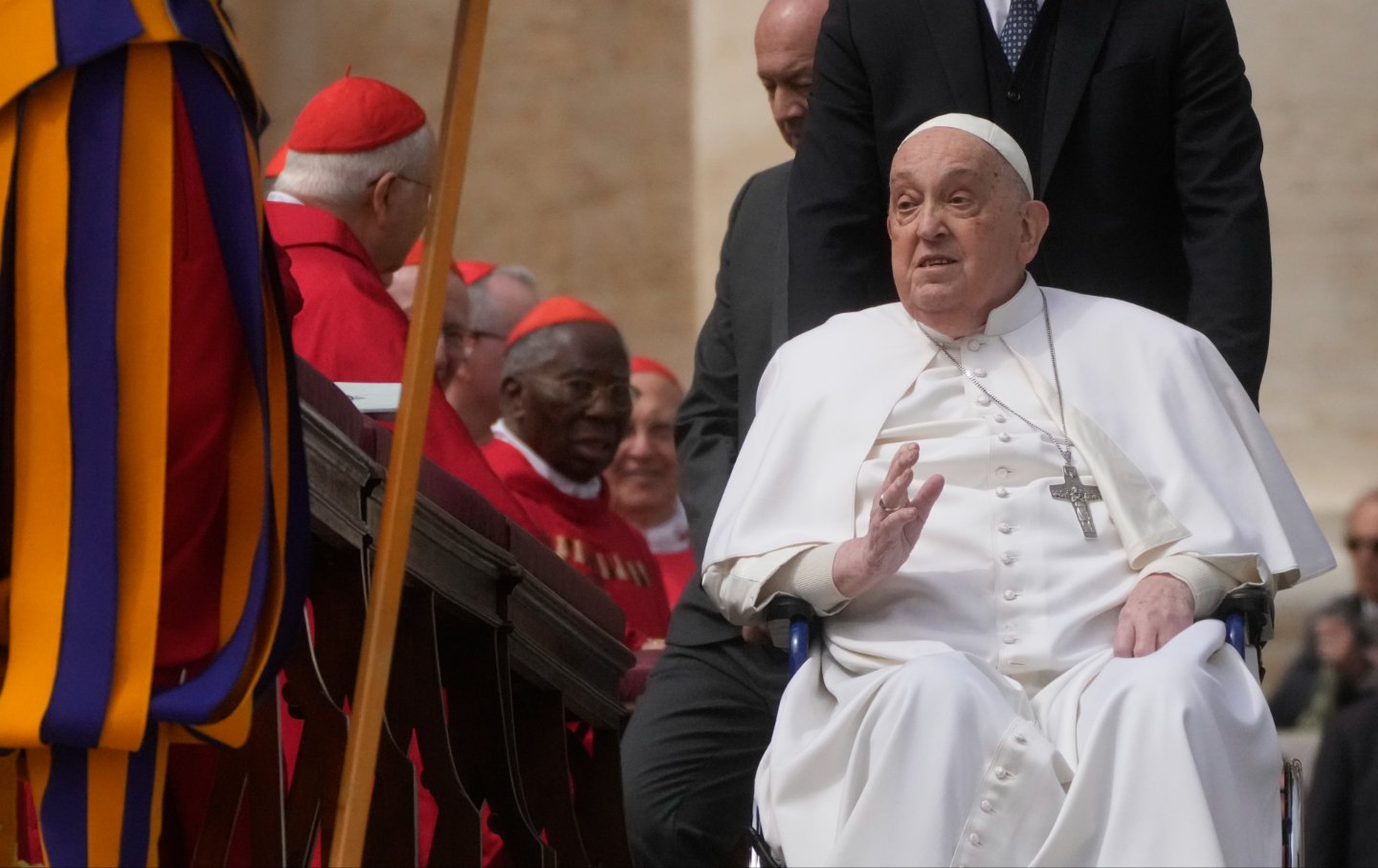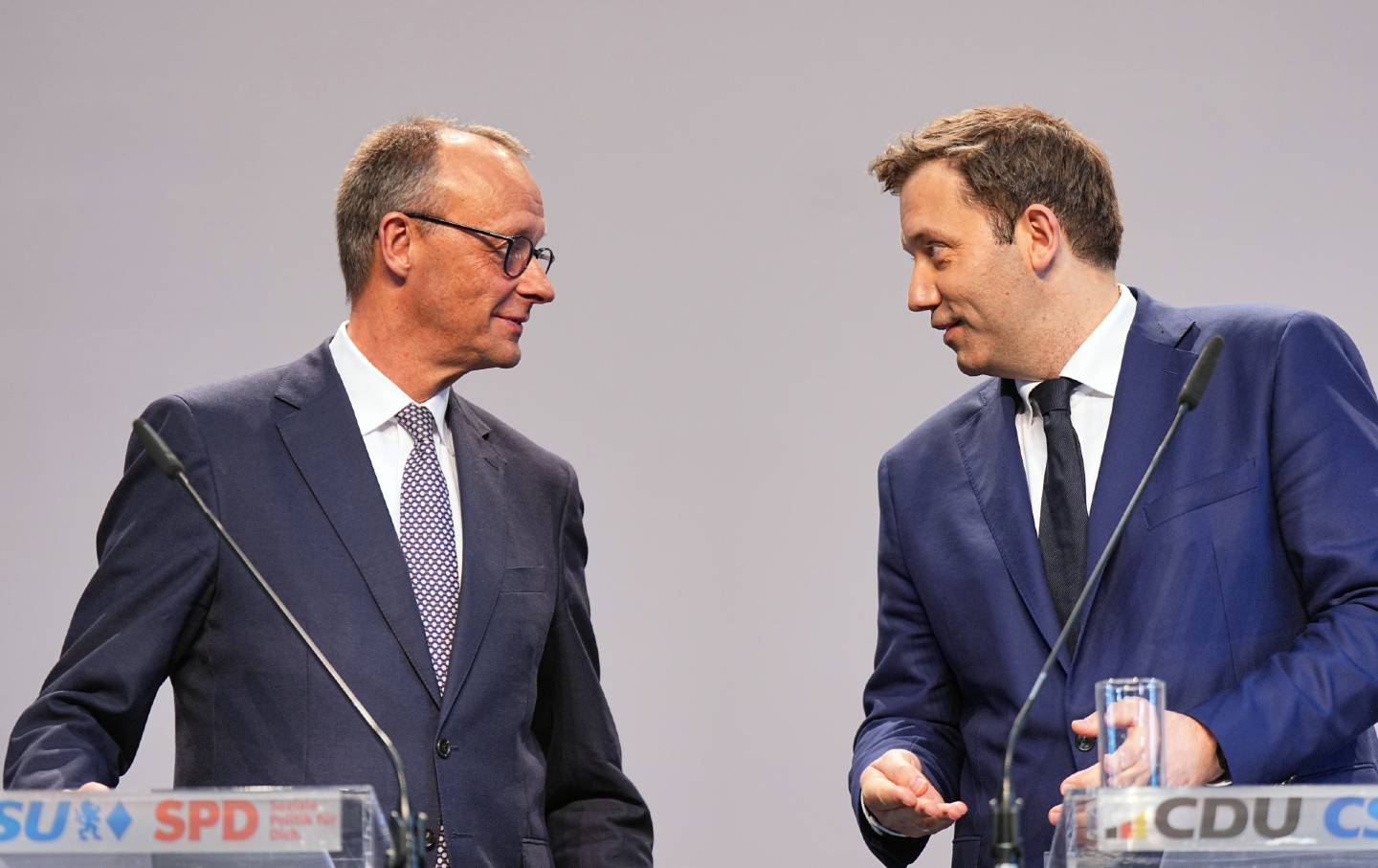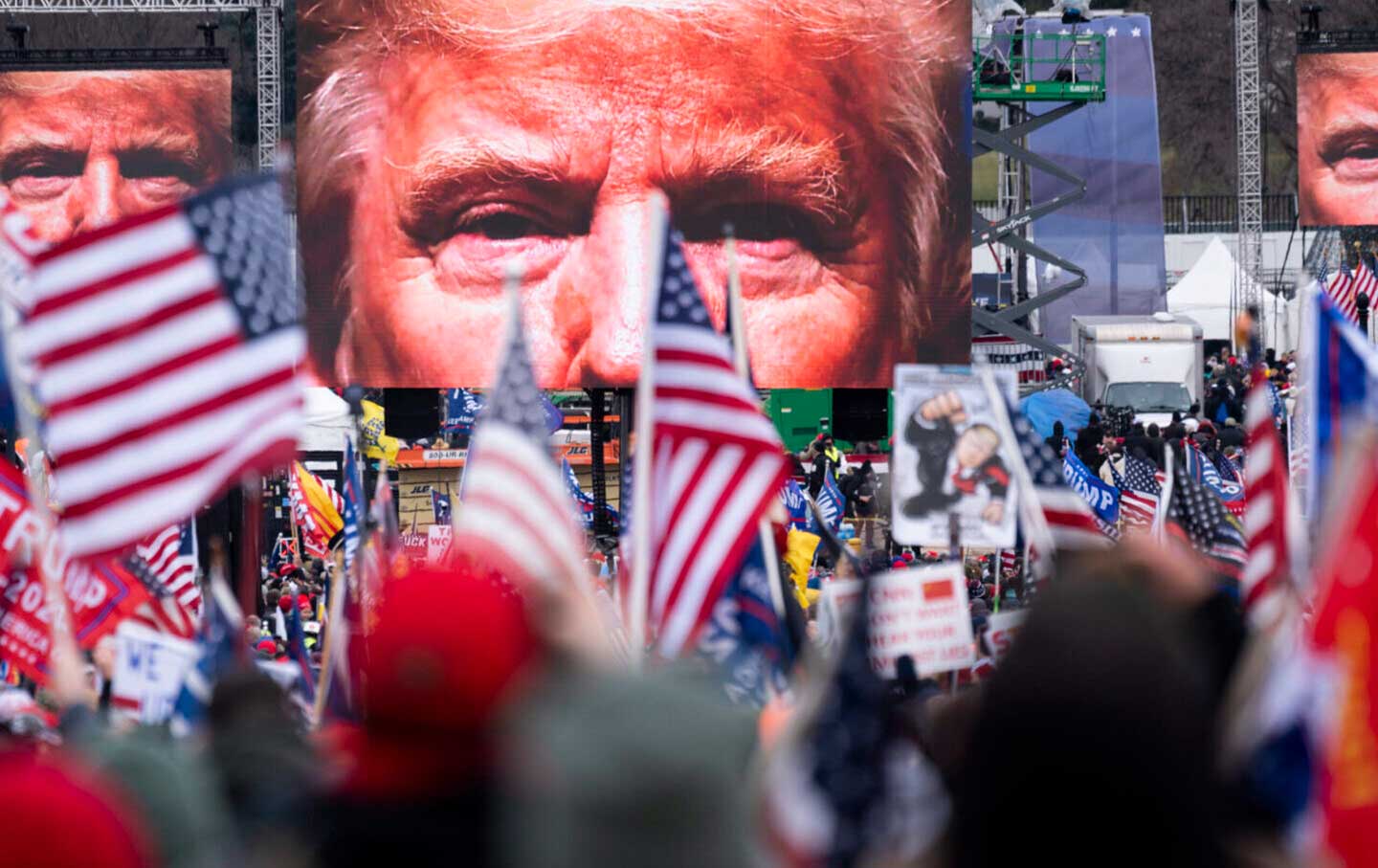New York Helps Subsidize Israeli Settler Groups—Zohran Mamdani Isn’t OK With That
A conversation with the New York State Assembly member who introduced the Not On Our Dime! Act, a landmark bill to prohibit charities from financing settler violence.

Most New Yorkers probably haven’t heard of the Israeli organization Regavim. Or the Israel Land Fund, Ateret Cohanim, or Hashomer YOSH. But these organizations—and the violence they sponsor—are effectively subsidized by New York State in the form of tax-deductible donations to the New York nonprofits that keep them alive.
It’s important for New Yorkers to know what these groups do with the funds that originate in their state. Regavim, for one, is the creation of self-described fascist (well, technically, self-described “fascist homophobe”) and Finance Minister Bezalel Smotrich, who recently stated that the Palestinian community of Khan Al-Ahmar needs to be expelled “not because it is illegal, [but because] it sits in a strategic area…that will determine if, God forbid, there will be an Arab territorial continuum.” (Among his other greatest hits: “It’s a mistake that Ben-Gurion didn’t finish the job,” “Huwara needs to be wiped-out,” and “no such thing as the Palestinian people.”) His organization uses the military courts as well as the group’s connections to the Israeli army to displace Palestinians in Khan Al-Ahmar, Masafer Yatta, and Susiya.
The Israel Land Fund (ILF), meanwhile, is the brainchild of another Israeli statesman: Jerusalem Deputy Mayor Aryeh King. He founded the ILF as a response to the “danger” of “more and more Arabs and non-Jews living and owning land all over Israel” and has kept himself busy attempting to sue various families out of their homes in my neighborhood, Sheikh Jarrah. Hashomer YOSH sponsors settler vigilante violence targeting Palestinian farmers and hikers in the occupied West Bank. And the infamous Ateret Cohanim works to ethnically cleanse Jerusalem’s Palestinian communities in the Old City and Silwan with fabricated real estate disputes.
Every year, these organizations receive as much as $60 million from tax-exempt New York nonprofits like the Central Fund of Israel. But now there’s a first-of-its-kind effort to try to disrupt this New York to settlement pipeline. The Not On Our Dime! Act aims to revoke the charitable status of the nonprofits that siphon hundreds of millions of dollars into Zionist colonization in Palestine, on the basis that they violate International Law and sponsor war crimes. The bill comes as part of a campaign of the same name spearheaded by a coalition of several civil rights organizations: the Center for Constitutional Rights, the Movement for Black Lives, New York City DSA, the Palestinian Youth Movement, Jewish Voice for Peace, US Campaign for Palestinian Rights, Adalah Justice Project, and the Muslim Democratic Club.
Following a rally on July 20 when over 500 New Yorkers marched in protest from Herald Square to the headquarters of the American Friends of Ateret Cohanim, I sat down with New York State Assembly member Zohran Mamdani, who introduced the legislation, to ask him about the relevance of this bill for everyday New Yorkers and the response among his constituents and colleagues. The conversation has been edited for length and clarity.
Mohammed El-Kurd: You’re a New Yorker. You live in Queens. How did you come to know and care about what happens in Palestine?
Zohran Mamdani: When I was 5 years old, my father got a job at the University of Cape Town, and we moved to [South Africa]. It was right around the time when Apartheid had just fell and there was a lot of solidarity with Palestinians. Growing up in that context and seeing how prominently understood it was that these were interconnected struggles is something that remained with me. I moved to New York when I was 7 years old, and Palestine continued to be a topic of discussion in the apartment. And it was in college that I realized that the key is not simply to possess politics, but to actually do something with that politics, so I cofounded my school’s first Students for Justice in Palestine [at Maine’s Bowdoin College]. That was my entryway into organized politics and what led me to the path that has eventually brought me to the New York State Assembly.
MEK: There are many pressing issues in New York—transportation, homelessness, schools—and you have and continue to campaign around them. Why is Not On Our Dime Act important to your constituents?
ZM: On an annual basis, at least $60 million dollars a year are funneled tax-free through New York State–registered charities to Israeli settler organizations. And as a legislator, when you are shown clear and explicit findings of that which is broadly understood to be illegal, it’s incumbent upon you to act. At a time when we are being told—at the state level, at the city level—that there’s simply not enough money to fund basic public services, the idea that we would not tax $60 million a year and allow it to instead go in its entirety to settler organizations is unfathomable. I’ve heard many constituents say, “I want that money to be taxed, so I can keep my library open for more hours on the weekend.” Palestine is of immense importance to me. But I understand that my role as a state legislator also means that I should be proposing and functioning within my jurisdiction. I’m not legislating American foreign policy, I’m not legislating something beyond the bounds of what we do in Albany.
MEK: Would you say the majority of your constituents are in favor of this bill?
ZM: The response from my constituents has unequivocally been that of support for this legislation.
MEK: What is the main aim of this bill?
Popular
“swipe left below to view more authors”Swipe →ZM: [The legislation] makes explicit what is implicit, which is that a certain class of activities are fundamentally inconsistent with a charitable purpose. We put it into New York law that you cannot be registered as a charity in this state if you are financing the violation of the Geneva Conventions. And if you ask any New Yorker who is not in the world of New York politics whether charities should be able to finance Israeli settler organizations that are in violation of the Geneva Conventions and international law, they would tell you obviously that shouldn’t be the case. What [the Not On Our Dime Act] does is it says that if you’re a charity financing these violations, you cannot continue to operate as a charity. It states that the attorney general is given the right to sue these charities for at the minimum of a million dollars. And it creates a private right of action for those who have been harmed by the activities that have been financed to find and pursue justice in New York State courts.
MEK: The legal ask of the campaign is quite modest. You’re not reaching for the stars.
ZM: I would agree with your characterization of this legislation being very modest. The idea of it as “radical legislation” is only because of who it applies to. Because for so long, in New York politics and American politics, the idea of applying reasonable or modest ideas to the State of Israel, or anything connected to the State of Israel, is seen as simply beyond belief. We have a set of seemingly universal beliefs. And then when it comes to Palestine, it’s been acceptable to draw an exception. The only way that you can start to change that norm is if you actually call it out for what it is, which is a contradiction, and you begin to legislate with a sense of consistency. And I know so many of my constituents do not want to see money effectively being subsidized by New York State, because of the fact that it’s tax-free, being sent to finance the violation of human rights.
MEK: Speaking of “Progressives Except for Palestine,” what do you say to the like-minded New York State Assembly members—your progressive colleagues, so to speak—who have not yet come out in support of this bill?
ZM: To those that have yet to come and sign [in] support [of the Bill], I would say that the door is forever open. Because this is not simply a moral position. This is also a position that is in line with our broader politics. And it’s something that is demanded by New Yorkers. Much of our plan in the months to come is to make that constituency very present. And that began with having 500 plus people attend a march in Midtown Manhattan for a piece of state legislation, which is not typically the case.
MEK: Do you think [these legislators] are afraid of the backlash typically associated with speaking out against Israeli oppression? Or do you think they have no qualms with ethnic cleansing…that they ideologically oppose Palestinian human rights?
ZM: I think it is more a case of the former. I think it is a case of calculus. [They] look at what has happened to others [and think], why should I put myself in the same firing line? What is so critically necessary about this campaign is that it starts to change that analysis. You’re seeing the shift in American public opinion. Just 38 percent of Democrats sympathize more with Israelis, while 49 percent sympathize more with Palestinians. Even amongst American Jewish voters, 58 percent oppose US funding of settlement activity. You’re seeing the political class and everyday Americans increasingly out of step when it comes to Palestine. The idea of doing larger rallies and town halls across New York City is to showcase to politicians who too often understand this issue with an organized, pro-Israel network in mind that there is an equal, if not in fact larger constituency of New Yorkers who demand human rights for Palestinians.
MEK: Following your introduction of the Not On Our Dime Act, 25 New York lawmakers sent a letter claiming “the bill is a ploy to demonize Jewish charities…only introduced to…sow divisions within the Democratic Party.”
ZM: Along with being poorly written [the letter] is a broad mischaracterization of the legislation and speaks to the fact that settlements in and of themselves are indefensible. And so the only way to defend against it is to pretend as if the legislation is doing something entirely different.… This [bill] is about settlements. We are talking about long-settled American foreign policy, [which is] in opposition to settlements and settlement expansion. And this legislation [is] an attempt to take that policy and actually put it into practice.
MEK: But the US stance on settlements has historically been one of empty words. There are over 250 illegal Jewish-only colonies in the occupied West Bank, and Israeli bulldozers are breaking ground for more settlements as we speak. Many of the organizations targeted by the bill either have solid ties with the Israeli government or have been founded by Israeli lawmakers. Yet the US continues to send the Israeli regime $3.8 billion annually. In fact, the current administration went so far as to obstruct a resolution at the UN Security Council that would have condemned and demanded an end to settlement expansion.
ZM: Yeah. One [organization] that comes to mind is Regavim, which was cofounded by [Israeli Finance Minister] Smotrich, who was most recently calling for the wiping out of an entire village.
MEK: Huwara.
ZM: We see how often the settler organizations and the state of Israel operate hand in hand, and how oftentimes these organizations do that which the Israeli state does not want to be associated with. It’s critical that we understand in this country that our support of what is going on there is not simply from federal funds. It’s also from tax-free charitable funds that Americans are sending individually.
MEK: While the legal ask of the bill is modest, there is no denying it is an ambitious undertaking when you consider the political climate in this country—and the recent resolution shielding the Israeli regime from indictments of racism and apartheid, which passed with overwhelming support from Congress. Not On Our Dime might not pass. What is the value of this bill beyond symbolism?
ZM: Any fight of substance begins as a fight of symbols. It is our job to take it from one place to the other. We have to recognize where we are in American politics, where we are in New York politics. When it comes to Palestinian rights, it is a place of weakness. The only way that you can change that is by beginning the fight. Even if we do not pass this legislation, this becomes a place of calculus, where [politicians] have to realize that, actually, there is a constituency in my district that is demanding Palestinian human rights. And if I go on this AIPAC trip every single year, or if I sponsor this legislation to give another $3.8 billion a year to the State of Israel at the federal level, there will be a consequence for it.
MEK: You ran as a member of Democratic Socialists of America. Over the last year or so, there’s been a fierce debate within DSA about where Palestine advocacy fits in the larger DSA struggle. I think Palestine is the litmus test for DSA politicians, but many people disagree. Where do you think Palestine fits in the larger DSA struggle, if at all?
ZM: It absolutely fits into the larger struggle and, frankly, that’s the reason I joined the organization. I used to work on a campaign for Khader El-Yateem, a Palestinian Lutheran minister for City Council in 2017, and he was endorsed by DSA. That campaign changed my life. I came into contact with a political movement that understood Palestine as being a central part of the struggle, which is something that I had often struggled with, speaking about “progressive except Palestine,” all of these politicians I had admired, who found every way to not address Palestinians when it came to their seemingly universal struggles. I’ve often viewed Palestine as a way to separate the progressives except Palestine to those who have a full framework of what liberation means and what it means to be a socialist.
MEK: What is the significance of New York State being the birthplace of the Not On Our Dime Bill, considering NYS is also where some of the first pieces of anti-Palestinian legislation were introduced? Cuomo’s 2016 first-in-the-nation Executive Order, for example, which opened the door for 37 states to now have anti-BDS laws.
ZM: People understand how important New York is to the debate around Israel and Palestine. They understand it, because New York has often served as the foundation for some of the most right-wing support for the State of Israel and settlements at large. We see that in the material impacts of the money that we’re talking about right now but also, politically, if you think about the national leaders who are on the forefronts of saying that there must be unquestioned support for the State of Israel, oftentimes, those are New York politicians. And seeing this [bill] as an opening of how to write a new chapter in our state’s political history is something that my constituents have made very clear to me. If we were in a state where $100,000 was going every year to Israeli settler organizations, it would be a different matter, but we’re in a state where it’s $60 million. And much of that funding actually makes up the entirety or the majority of those settler organizations’ operating budgets. And we know that if we win this fight, we can actually shut those kinds of organizations down.
MEK: What would it take for this bill to pass?
ZM: It would take a fundamental shift in how New York state politicians understand this issue. I’m not naive [about] how long of a fight this could be. But our aim in this legislation is not simply to pass this bill, but to use this bill as well as an organizing opportunity whose ramifications will be felt at every level of government. And I already know that we’re inching towards that because of the conversations I’ve had with other legislators at city and federal levels of government, even from state legislators and other states who have called to say, “I’m interested in introducing legislation like this in my state.”
You were saying earlier that you don’t typically associate state governments with being supporters of Palestinian human rights. In fact, what we’ve seen across the country is state governments being the place where there is an attempt to criminalize free speech in support of Palestinians. What we are doing with this first-in-the-nation legislation is showing a different playbook for how we can finally be affirmative, and not just forever be on the defensive and say, “actually, Palestinians are people too and actually, Palestinians deserve the First Amendment.” We can go beyond that now. And we can say what Palestinians deserve, as opposed to what they shouldn’t be denied.
Hold the powerful to account by supporting The Nation
The chaos and cruelty of the Trump administration reaches new lows each week.
Trump’s catastrophic “Liberation Day” has wreaked havoc on the world economy and set up yet another constitutional crisis at home. Plainclothes officers continue to abduct university students off the streets. So-called “enemy aliens” are flown abroad to a mega prison against the orders of the courts. And Signalgate promises to be the first of many incompetence scandals that expose the brutal violence at the core of the American empire.
At a time when elite universities, powerful law firms, and influential media outlets are capitulating to Trump’s intimidation, The Nation is more determined than ever before to hold the powerful to account.
In just the last month, we’ve published reporting on how Trump outsources his mass deportation agenda to other countries, exposed the administration’s appeal to obscure laws to carry out its repressive agenda, and amplified the voices of brave student activists targeted by universities.
We also continue to tell the stories of those who fight back against Trump and Musk, whether on the streets in growing protest movements, in town halls across the country, or in critical state elections—like Wisconsin’s recent state Supreme Court race—that provide a model for resisting Trumpism and prove that Musk can’t buy our democracy.
This is the journalism that matters in 2025. But we can’t do this without you. As a reader-supported publication, we rely on the support of generous donors. Please, help make our essential independent journalism possible with a donation today.
In solidarity,
The Editors
The Nation


